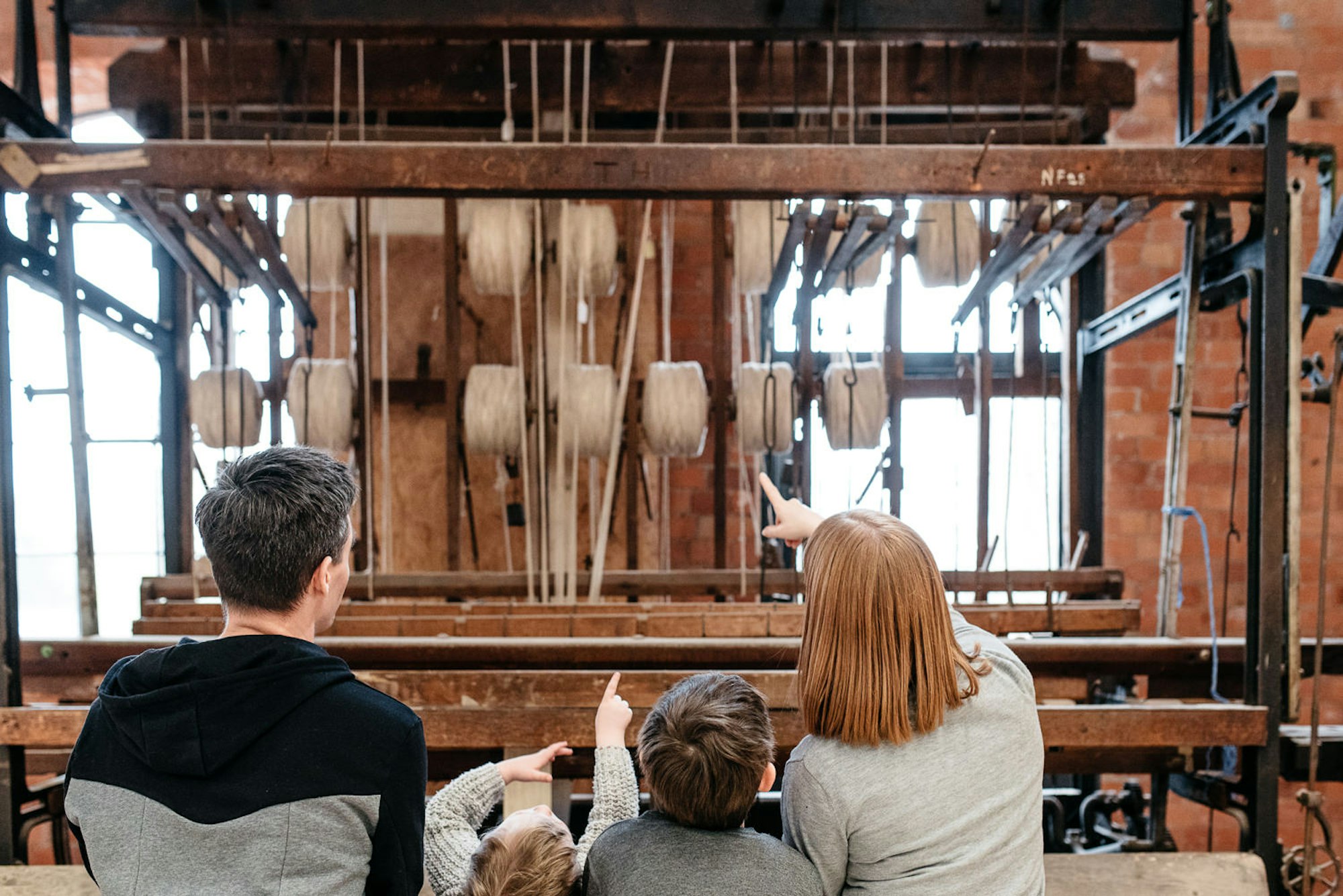Stories / Inspiration /
Is wood sustainable and where should you be buying it from?

Is wood sustainable?
The environment’s not in a great place at the moment - we’ve got 5 trillion pieces of plastic debris in the ocean and those iphones that continue to fly off the shelves have a carbon footprint of 95 KG. But what about wood? There’s always been something pretty wholesome about using wood, right?
In theory wood is a renewable source. Trees have always lived alongside us, playing a crucial role in creating a balanced ecosystem. They form the world’s forests and jungles, providing homes to animals, insects and humans alike. They take carbon out of the atmosphere whilst they’re living and when we cut them down this carbon remains stored in the wood. When you’re finished with it, wood should decompose naturally, and just like the compost in our gardens, it feeds new growth as it decomposes.
Unfortunately, this is a rather idyllic vision of the timber industry. In reality, most wooden products on the market come from the mass clearing of forests, destroying ecosystems in its wake. Although most wood loggers will replant a tree for every tree they cut down, they will not replicate the delicate balance of a varied forest. This means that forests that were once home to dozens of species of trees and animals are replaced with acres of land with just one tree species, causing devastating impact on the local environment.

For designers, it is not only about sourcing the material, but once you’ve got timber to work with, the sustainability of the end product is yet to be determined. How far does the wood travel? Are any additional processes applied? Do we add glue? Do we add paint or stain? Are these substrates sustainable and how do they affect the wood’s ability to be recycled or to decompose naturally once we’re finished with them?
In reality most of the wooden products that we consume have not been sourced from sustainable forests. It is unusual to buy an unfinished wooden product and any painted or stained wood is not recyclable along with many processed woods like MDF. Ikea, who buy 1% of the world’s commercially harvested wood are still only using 50% FSC approved wood in their products worldwide and have been slammed by environmentalists for cutting down 600 year old trees to make flat pack furniture.
Image from Ikea Website
Ultimately, when mass production and profit is the main driver, we can’t trust large companies to put sustainability at the forefront of their operations. Instead, here are some things that we can all do as designers and consumers to support and develop a sustainable wood industry in Scotland.
Tips for buying sustainable wood in Scotland
- Only buy wood and wooden by-products (including paper) that is FSC or PEFC accredited. FSC is an international network that promotes responsible management of the world’s forests whilst PEFC works throughout the entire forest supply chain to promote good practice in the forest.
- There are some other certifications that you can look out for – the Smart Wood label from the Rainforest Alliance and the SCS label and the Green Seal from the Scientific Certification Systems.
- Buy as local as possible to reduce the miles the wood has to travel. In addition to the sawmills you will find on Make Works, ASHS have a brilliant network of small sawmills to pick from.
- Avoid buying wood that has paints and stains applied - instead opt for those with natural finishes that can easily be stripped prior to recycling.
- Buy second hand, restored, or pieces made from reclaimed wood. As this reputable report from The Onion confirms: “Even if every person decided to sit down at the exact same time, there would still be an adequate number of chairs to go around,” Clouse added. “As far as chairs go, we’re basically set.”
- Avoid tropical hardwoods like Teak, Mahogany, Redwood and Douglas Fir unless they’re FSC/PEFC certified – most of these timbers are sourced from irreplaceable, ancient forests.
If this sounds like a lot of work, we’ve got some good news. On Make Works there are a number of fantastic sawmills and Scottish makers that specialise in sourcing and using sustainable wood.
Where to buy wood in Scotland
Scottish Borders: Real Wood Studios, sawmill and timber fabricator

Real Wood Studios are a wood workshop facility for designer-makers, sawmill, and supplier of sustainably sourced Scottish hardwood. They offer bespoke fabrication and also have finished pieces which can be viewed in their showroom in Jedburgh – wooden products include furniture, flooring, cladding and mantels.
Fife: Scottish Wood, sawmill

Scottish Wood is a sawmill based in Fife, supplying Scottish Timber from environmentally sustainable, local sources. Scottish Wood was set up to revitalise the local woodland culture for the benefit of the community, economy and environment and they work to develop and promote the wood industry as a whole.
Ayrshire: Clachan Wood, timber fabricator

Clachan Wood, run by Stuart Clachan, are a bespoke fabricator of wooden furniture nestled between Turnberry and Girvan in Ayrshire. Stuart encourages the use of windblown Scottish native hardwoods, and where possible it is sourced and sawn within South Ayrshire followed by drying at their workshop.
Edinburgh: Evergreen Studio, timber fabricator

Evergreen Studio are a woodworking, laser cutting and engraving studio based in Edinburgh. They specialise in using locally sourced, Scottish hardwood.
Perthshire: Brodies Timber, sawmill and timber fabricator

Brodies Timber is a sawmill and timber shop based in Dunkeld, offering a cut to size service, as well as bespoke joinery and wood fabrication. They sell local, Scottish wood, alongside international varieties. In their own words Brodies Timber ‘always seek assurances from our suppliers on their chain of custody certification. Wherever possible we will supply FSC and PEFC accredited timber, timber products and sheet materials.’
On Make Works you can find a number of Scottish furniture makers, cabinet makers and wood workers who will be happy to work with the wood that you specify and are accustomed to working with locally sourced, accredited wood. You can see all of the woodworkers that we have listed here.
If you are a Scottish sawmill, supplying sustainable wood you can sign up to be listed on Make Works here
If you’d like to find out more about supporting local, Scottish manufacturing read: Ten fabricators you should know about in Scotland.
Categories
Inspiration
Related stories
Day 23 | Make Works Residencies 01 | Catching up with Katy West
Craft Scotland Conference
Happy International Women's Day!
Material Monday - Woven Polypropylene
Maker Speed Dater





